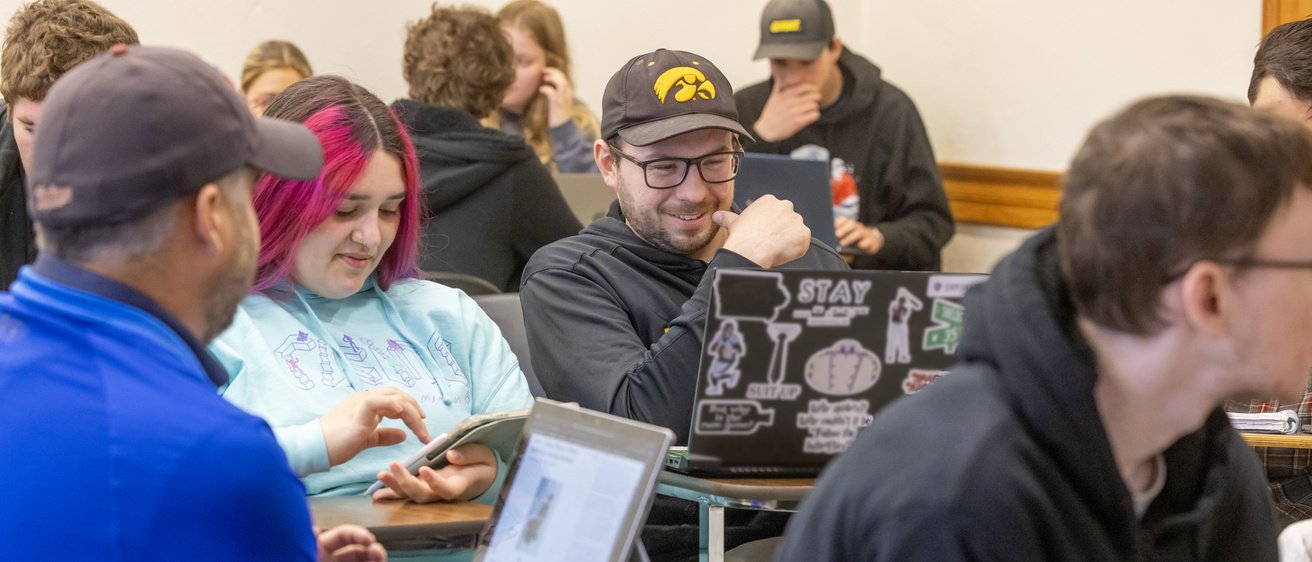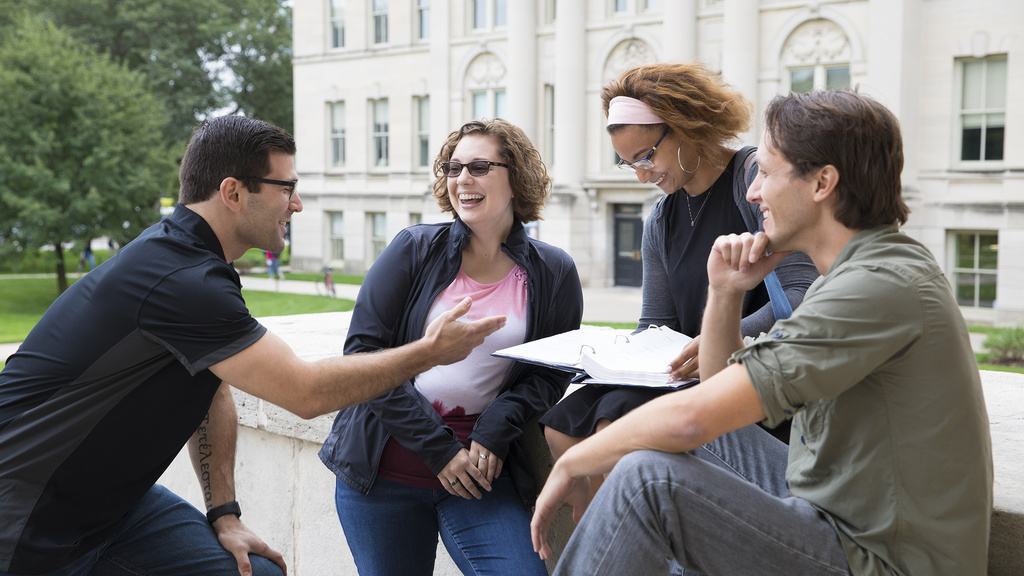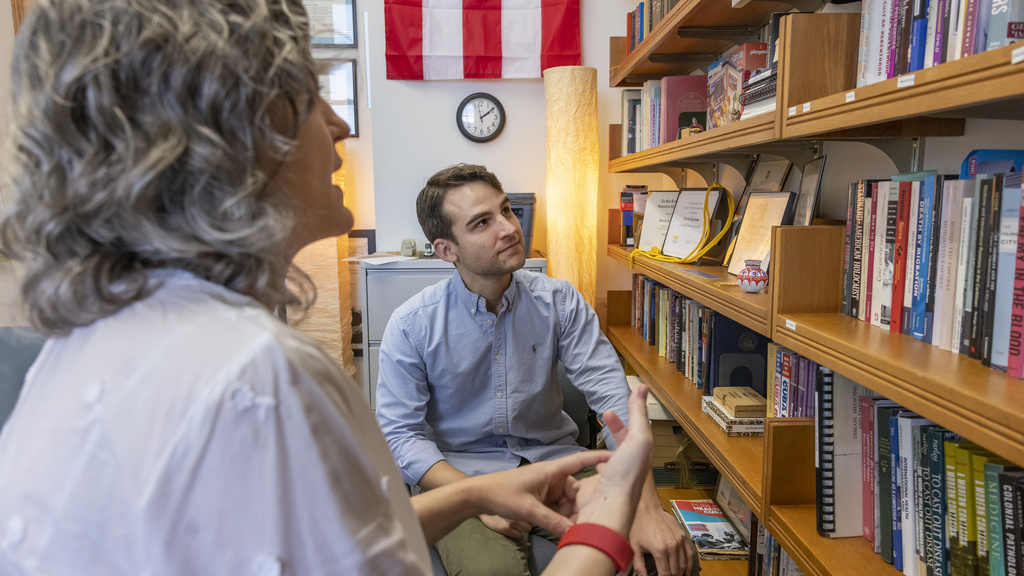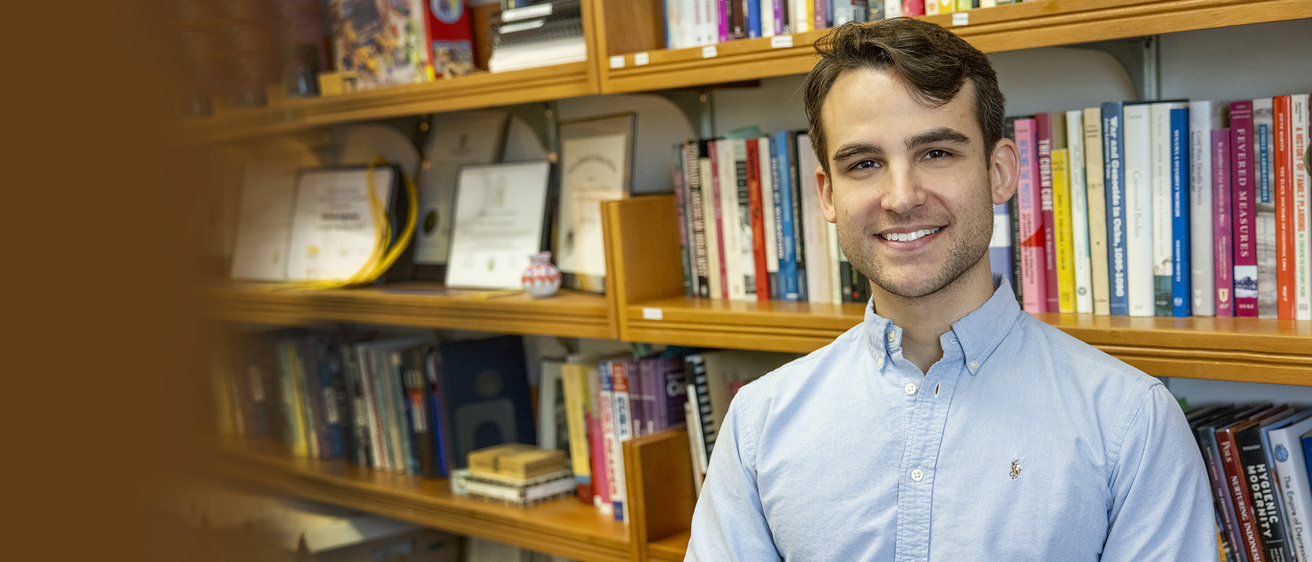Main navigation
Enjoy a lively, supportive intellectual community.
We are a small, selective program offering students individually tailored study in a range of historical fields alongside opportunities to closely work with faculty on research, teaching, and public engagement at the MA and PhD levels. The department works like an artisanal shop, ensuring each student gets the personalized mentoring necessary to achieve their intellectual and professional goals. We tout an excellent placement rate within the academy and support non-academic goals with equal enthusiasm.
Explore graduate programs
About the graduate program
Graduate students in History enjoy a lively, supportive intellectual community. Through organizations like the department’s Graduate History Society and the collective bargaining unit UE Local 896-COGS (Campaign to Organize Graduate Students), students and their unique interests are well represented. Students also have access to world-class research resources including a 5-million volume library, the History Corps project, the Obermann Center for Advanced Studies, and the Digital Scholarship & Publishing Studio.
Current doctoral students are writing dissertations on exciting topics including: the non-human inhabitants of Chicago; female freedom fighters in Zimbabwe; Black Civil War veterans in the Midwest; systems of gender and sexuality among the Ojibwe; fiscal regimes in Imperial China; peace creation in reformation era France; energy policy and Native American reservations; and the overlap between German science and Mexican nation-making. Recent graduates are enjoying opportunities through postdoctoral fellowships as well as careers in academia, museums, historical consultancy, government and non-profit agencies, and other fields.
The Department’s faculty work in broad areas of topical and regional focus; including particular strengths in African American activism; migration and transcultural spaces; women and gender; transnational and imperial history (including the U.S. in the World); environmental history; cultural history; public history; and the history of science, medicine, and public health. We encourage you to contact individual faculty members with whom you might like to work. History graduate students can also enrich their studies interdisciplinarily through a number of other departments and programs across campus.



